Zing Coach surveyed 2,000 people aged over 18 to determine the surprising impacts of extreme weight loss methods undertaken before New Year celebrations.

It’s around this time of year that we realize we’re another year older and we’ve made no real progress towards achieving our health goals. Just like last year, we vow to change our ways and get in shape before we head off to see our loved ones for the holidays. We throw out the snacks, buy a ton of supplements, hire a personal trainer, and push ourselves to the limit.
But it’s too late — at least to do it safely, with health professionals recommending burning one to two pounds a week to avoid putting too much strain on your body. So you either fall back into your old ways or you go to extreme lengths to see results in time for the New Year. Either way, your body suffers.
Zing Coach surveyed 2,000 people on the extreme efforts they have made to lose weight ahead of the New Year. The results show that, rather than benefiting your health, extreme weight loss methods are more likely to harm it.
Counting down the seconds and cutting down the calories
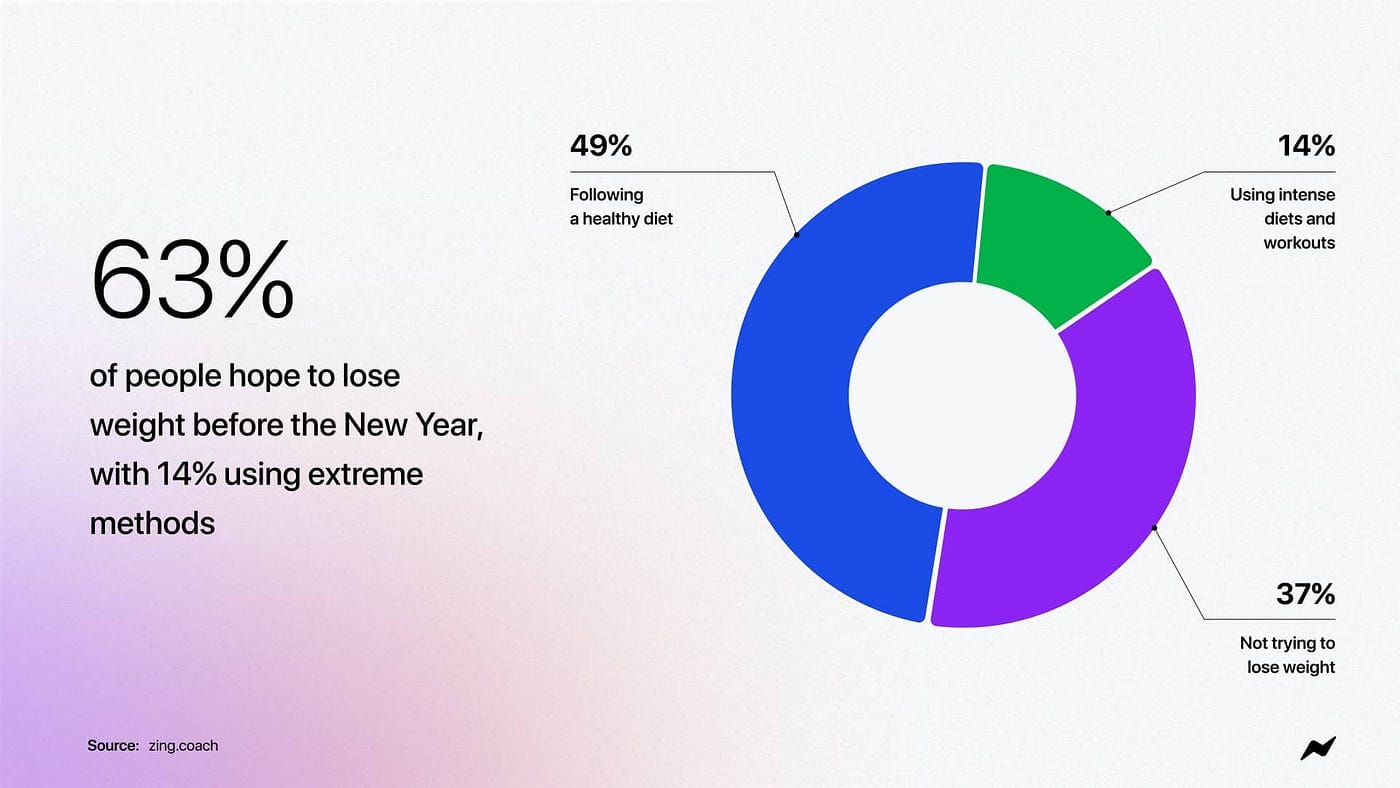
Improving our health is by far the most popular New Year resolution, but 63% of people aren’t waiting for 2025 to get started on their weight loss journey. There’s no harm in shedding a few pounds ahead of the New Year — Getting started now can counteract the weeks of overindulgence ahead, improve our mood, and boost our energy levels to get us through the busy festive period.
But problems arise when we take weight loss to the extreme. For the 14% relying on intense diets and workouts to drop down a dress size in less than a month, expect a low mood and lack of energy to stop you from making the most of the holidays.
The extreme steps many take to get New Year-ready
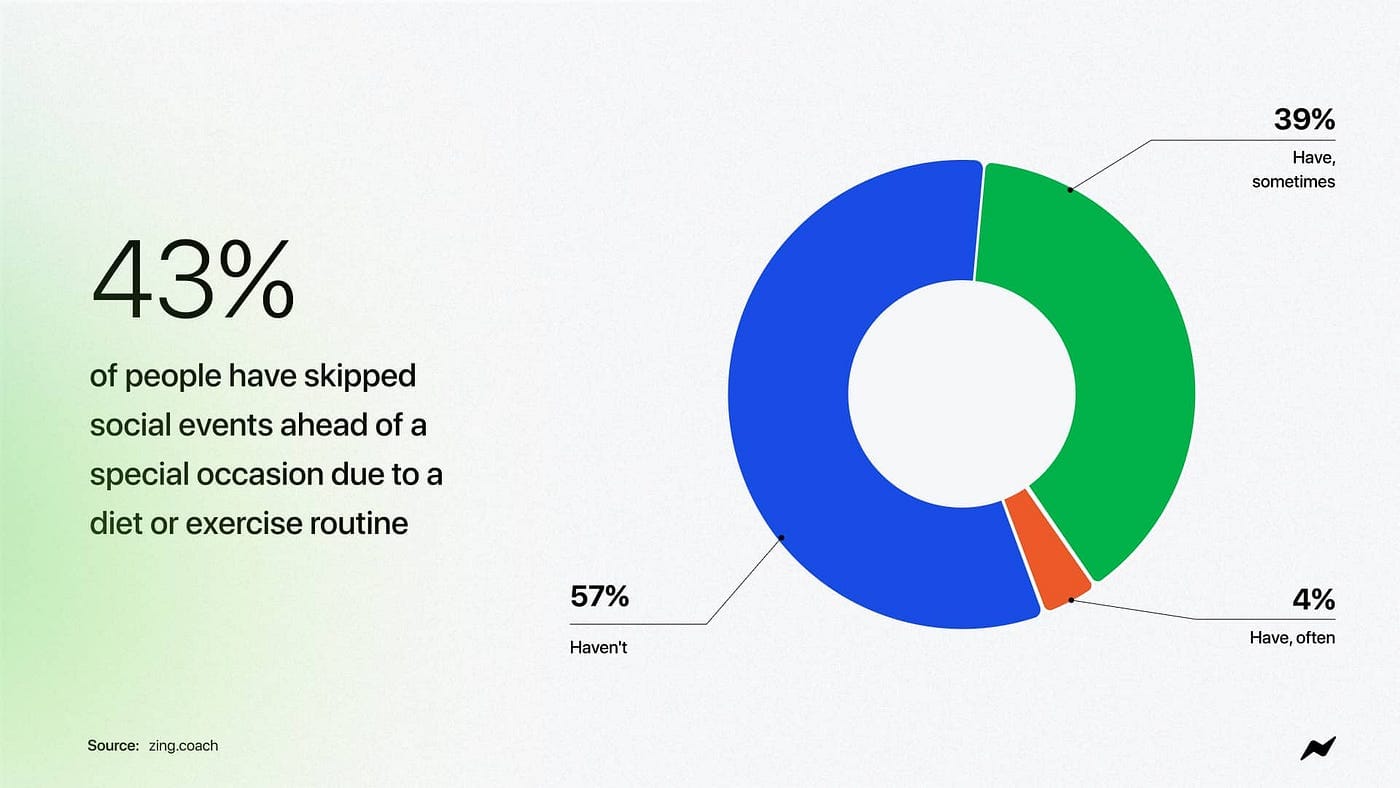
The festive season is supposed to be a time to let our hair down and socialize with our friends, family, and colleagues. Yet, for many, the burning desire to get in shape often gets in the way. In fact, nearly half have bailed on social events in order to spend more time in the gym or avoid breaking a diet.
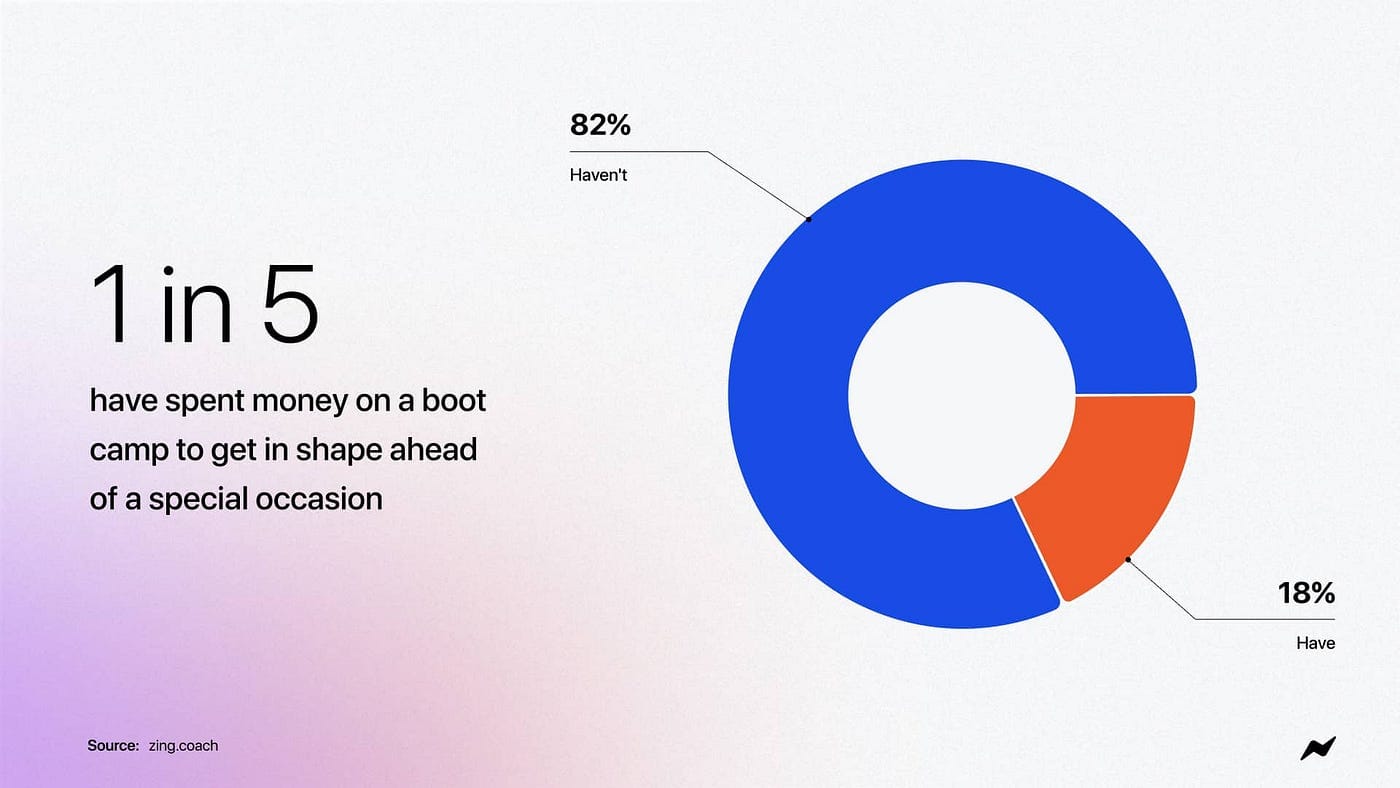
But many aren’t just closing their diaries — they’re opening their wallets too. Some 18% have spent money on fitness boot camps in an effort to get in shape for a special occasion.
While boot camps can be a great way to burn calories quickly, they often have the opposite effect. A sudden surge of intense exercise can shock the unprepared body, leaving you out of action for the next few days. And that treat or two that you would’ve otherwise avoided… You’ve earned it, right?
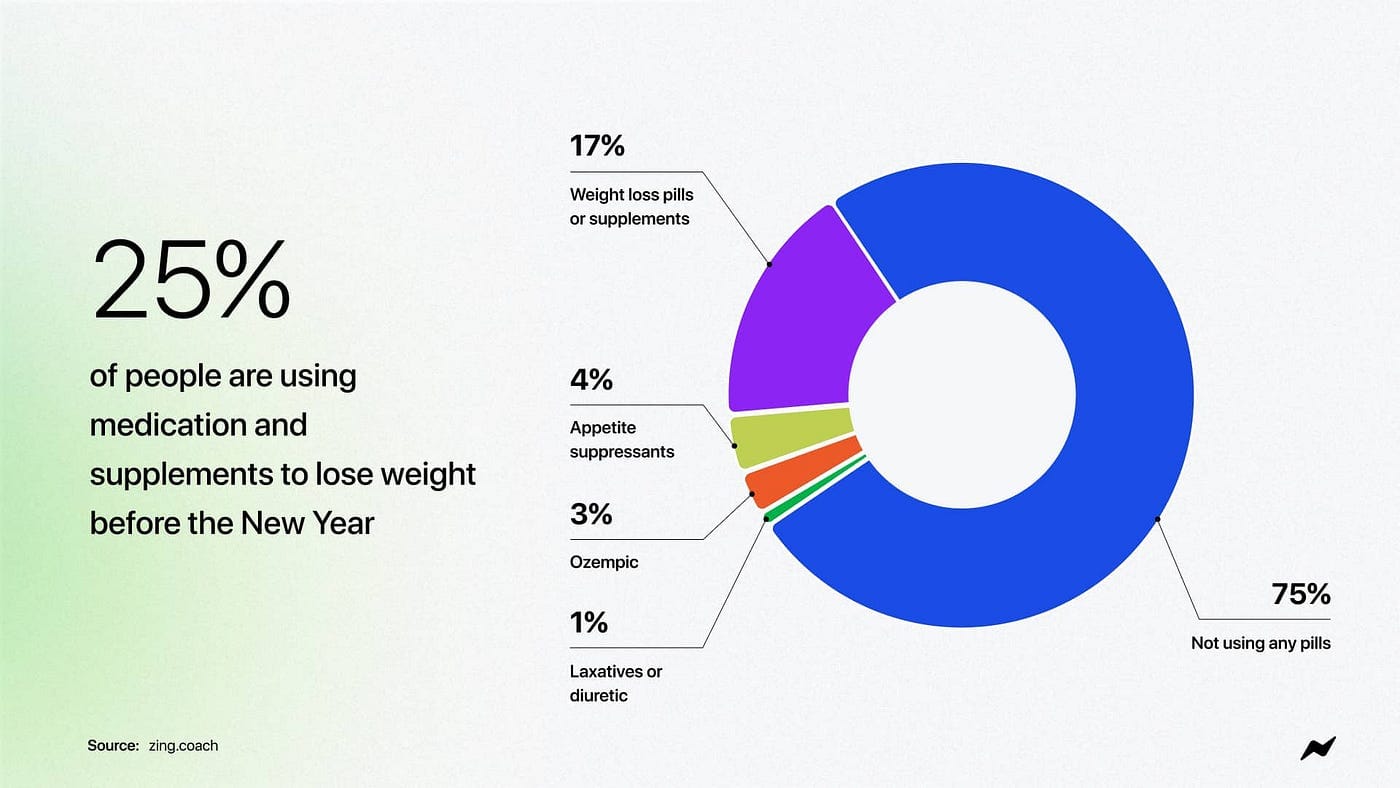
When the unsustainable exercise routine doesn’t work, 25% of people turn to medications such as appetite suppressants or weight loss injections.
Worst case, these drugs wreak havoc on your body, causing issues such as dehydration, hormone imbalance, or potentially even organ damage. Best case? You lose some weight, then stop taking them and pack the pounds back on again.
The effects of excessive exercise and dieting on our bodies
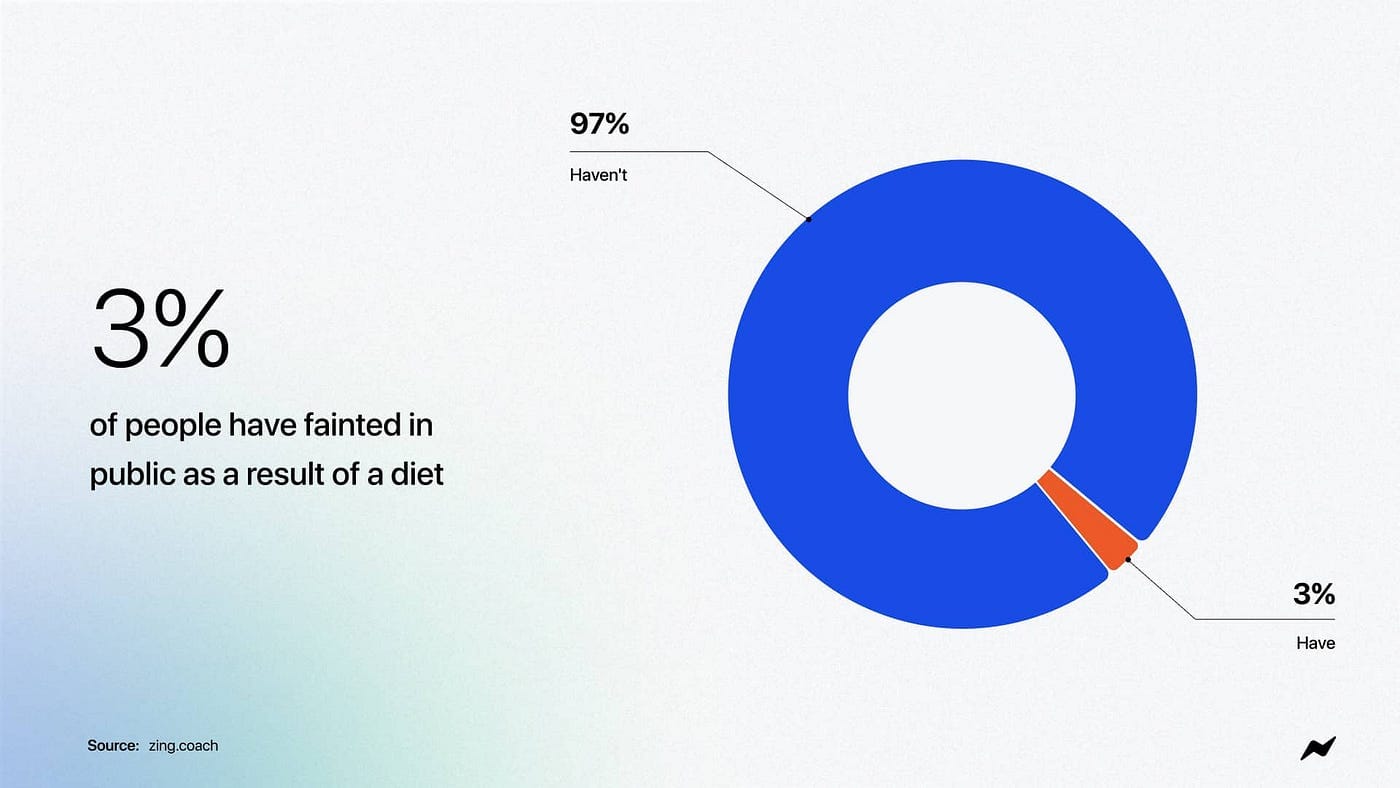
When you’re pushing your body beyond its limit, snacking on nothing but celery, and even limiting your water intake to achieve the lowest possible number when you step on the scales, chances are your body is missing out on crucial nutrients.
It’s common for those following intense diets to have low levels of sodium, which regulate the body’s fluid balance, for instance. The consequences are low blood pressure, dehydration, and, eventually, fainting — an effect that 3% of people have experienced while out in public.
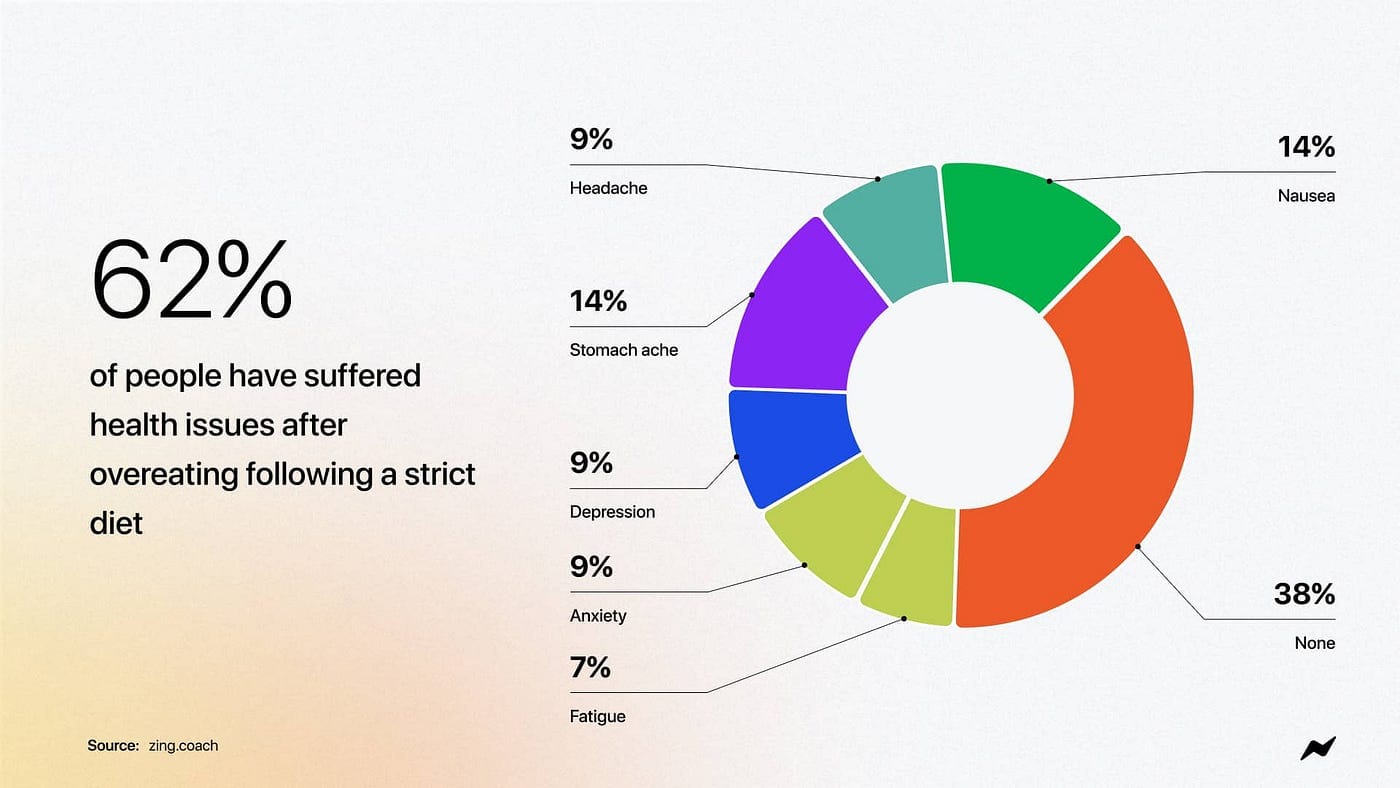
Most people will listen to their body’s warning signs before they collapse, often overeating to compensate. This comes with its own set of problems: 28% of people suffer nausea and stomach aches, for instance, while 9% experience headaches. However, it isn’t just on the body that overeating takes its toll, but also on the mind. For 18% of people, overeating results in feelings of depression and anxiety.
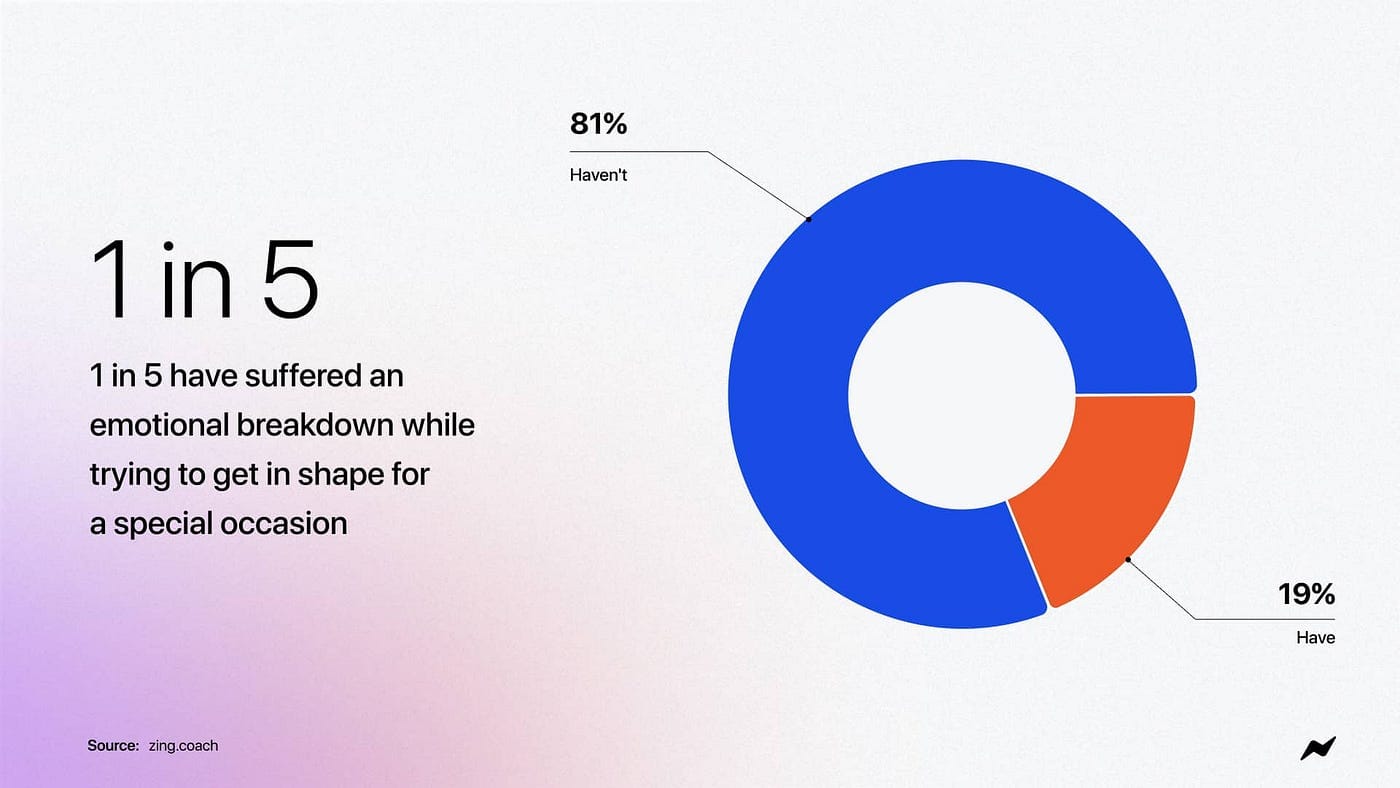
In fact, 19% of people have suffered an emotional breakdown when trying to get in shape for a special occasion. It’s no wonder. Not only do intense diets and excessive exercise put our bodies under immense stress, but the high-fat, low-nutrient foods we’re likely to binge on afterward alter our brain chemistry, resulting in negative emotional changes.
If you want to make 2025 the year that you finally get in shape, it’s best to avoid excessive workouts, extreme diets, and miracle pills that ultimately leave your body drained. Long-term results require a commitment to healthy lifestyle changes.


